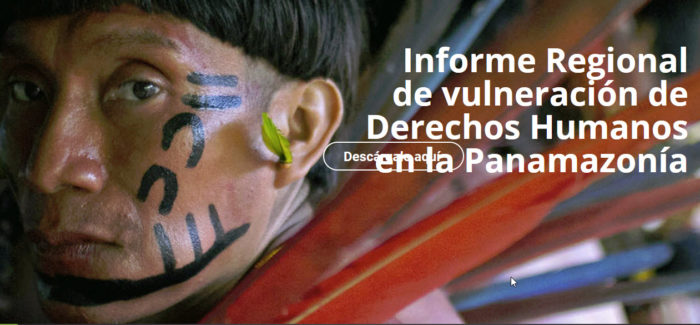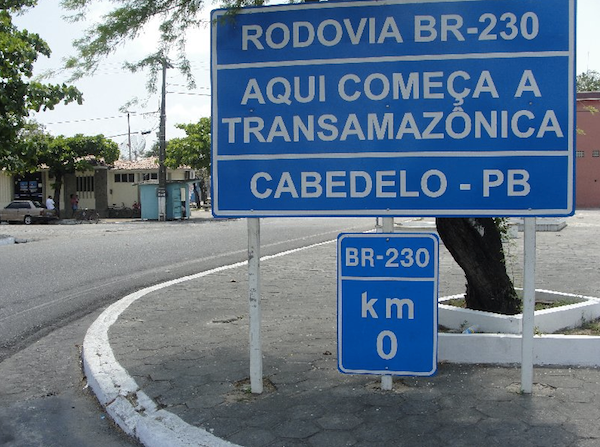A synod is a meeting of representatives of Church communities to discuss issues of doctrine or Church governance. So far, for most people, so boring. But when, in February 2019, General Augusto Heleno, President Jair Bolsonaro’s senior security adviser, described October’s Catholic Church synod on the Amazon as ‘relevant to Brazil’s national security’ and having a ‘left-wing agenda’, he was on to something. Of course, Heleno was expressing a fear deep-rooted in the Brazilian military that the long Amazon frontier makes the country vulnerable to foreign infiltration. Construction of the Trans-Amazonian Highway started in the late 1950s and always had a strategic as well as an economic purpose. It is the same attitude that lies behind Bolsonaro’s talk of ‘integrating’ the Amazon region into Brazil and industrialising it, which of course encouraged this year’s extensive burning.
Another trigger for right-wing paranoia is that the synod on the Panamazonian region, as it is formally called, will be an international meeting and will be held in Rome, the centre of world Catholicism. The fear of an ‘internationalisation’ of the Amazon region is close to the surface of Brazilian nationalist fears, as was revealed dramatically by the insults directed at French president Emmanuel Macron by Bolsonaro and his education minister, Abraham Weintraub, after Macron had raised the issue of the fires at the G7 meeting in Biarritz in August.
A Pan-Amazonian network
The synod, however, will be first and foremost a meeting of people from the Amazon region itself, Catholic bishops, priests and nuns – women are very important in remote Church communities – and laypeople, and will include representatives of indigenous communities. They will be drawn from the nine countries within which the Amazon region falls, Brazil (67%) Bolívia (11%), Peru (13%), Ecuador (2%), Colombia (6%), Venezuela (1%), and Guyana, French Guyana and Surinam (together accounting for 1%): the percentages represent the approximate area of Amazon territory within each country’s borders. Scientists are also being invited. The synod takes place from 6 to 27 October in Rome.

The origin of the synod goes back to the concerns of Catholic community leaders and organisations working in the Amazon. In the case of Brazil, the Catholic Church’s organisations concerned with indigenous people, CIMI, and with rural communities, the Pastoral Land Commission (CPT) have seen their mission as much more than narrowly religious, and the defence of the rights and culture of indigenous communities and the defence of small farmers against the encroachment and violence of ranchers have become a key activity. More recently the role of the rainforest in mitigating climate change has been added to their concerns. A key date was 7-9 October 2004, when the bishops of the whole Amazon region met in Manaus. During the following decade a series of similar meetings took place, leading in 2014 to the formation of REPAM, the Church Pan-Amazonian Network, which was to structure discussion on the Church’s role in the Amazon.
Care for the ‘common home’
Another significant event had taken place the previous year when, in March 2013, the Argentine Jorge Mario Bergoglio was elected pope, and took the name Francis. As he rejected the Vatican palace for rooms in a clergy hostel, he called for an ‘outgoing Church’, one concerned with the affairs of the world. In 2015 Francis issued an encyclical, the highest level of papal document, entitled Laudato Si’,on the environment, or ‘Care for the Common Home’, as the document was subtitled. In it he appealed for ‘a new dialogue about how we are shaping the future of our planet. We need a conversation which includes everyone, since the environmental challenge we are undergoing, and its human roots, concern and affect us all.’ The twin tracks of the Latin American bishops and the ecologically-minded Latin American Pope now united, and on 15 October 2017 Francis announced that a synod on the Pan-Amazonian region would take place in October 2019. He defined its subject as ‘New ways forward for the Church and for a comprehensive ecology’.
The REPAM network now swung into action, coordinating a process of consultation that directly involved about 87,000 people from the Pan-Amazonian region over the course of two years. REPAM coordinated and conducted about 300 listening sessions throughout the region, involving all nine countries in the Amazon. About 22,000 people were directly involved in the territorial assemblies and smaller dialogue groups, and another 65,000 people participated in parish groups. In other places, like Washington D.C., Rome and Bogotá, Colombia, various experts joined representatives of Amazon communities to reflect on issues that were being raised in the consultation process. Many of the consultations were reported on REPAM’s three websites, in English, Spanish and Portuguese, all slightly different. The results of the consultations have been condensed into a Working Document, a sort of agenda for the synod.
Listening to the people of the Amazon
This dense 55-page document is divided into three parts, a presentation of the situation in the Amazon region, an ecological response and the implications for the Church. Early on the document offers an apology for the Church’s historic links with European colonisation, but insists that the Church ‘now has an historic opportunity to show that it is different from the new colonising powers by listening to the peoples of the Amazon’ (7). That ‘listening’ is meant to include the religious view of the indigenous peoples: ‘We have to grasp what the Spirit has taught these peoples through the centuries, faith in the God who is Father-Mother-Creator, the sense of communion and harmony with the earth, the sense of solidarity with their fellows, the idea of ‘living well’ (121). Passages like these have brought accusations of ‘flirting with paganism’ from some conservative Catholics.
Broadly speaking, the Working Document takes a liberation theology approach to the question of the Amazon, with frequent reference to the famous slogan, the ‘preferential option for the poor’ with the addition of a favourite concept of Pope Francis’s, ‘integral ecology’, perhaps best translated as thoroughgoing environmentalism, respect for the environment and moderation in personal consumption. One interesting feature is that the document insists that its attitude is different from ‘an ecological desire for conservation that is concerned about the biosphere but not with the peoples of the Amazon’ (45); it includes a section on urban communities in the Amazon. The third part focuses on what the Church must do to respond to the crisis of the Amazon: this includes being better at talking to the various population groups, improving education – including civic and political education and education on the environment. Put simply, the consultation process carried out by REPAM over the last two years may become permanent, and there is a suggestion for a regional Church body to be responsible for the whole of the Amazon region. This last suggestion will revive the suspicions of Bolsonaro and his partisans that the synod is an attempt to ‘internationalise’ the Amazon region.
The usual suspects
Two particular suggestions that have attracted condemnation from conservative Catholics are that older married men who have brought up their families could be ordained priests, as an exception from the normal rule of celibacy, and that more authority could be given to women in Catholic communities. The shock-horror response is strange, as in English-speaking countries male Anglican clergy have for some years been encouraged to join the Roman Catholic Church and have been admitted to the priesthood even if married. Women too are frequently coordinators of parishes and Church communities in remote areas, though the ban on ordaining them as priests is still in force. It looks rather as though the synod’s critics know little about what happens in the Church on the ground.
Many of the critics might be described as ‘the usual suspects’. In Brazil the Instituto Plínio Correa de Oliveira, named after the extreme right-wing Catholic activist and founder of the organisation Tradition, Family and Property, has organised a petition against the synod for which it claims 20,000 signatures from the Brazilian Amazon region. The petition calls for ‘a Christian, prosperous Amazon region, and not a huge green favela divided into tribal ghettos’. According to the Estado de São Paulo newspaper, the group admits having had discussions with the Brazilian government and plans a meeting in Rome on the eve of the synod to present the petition. Internationally the best known critics are the US cardinal Raymond Burke, famous for his fondness for elaborate robes, and Cardinal George Pell, one-time confidant of Pope Francis, currently in prison after losing an appeal against his conviction for abusing two choirboys.
In the end, criticism of the synod, especially that from the Bolsonaro government, may have the paradoxical effect of directing more attention to what might otherwise have been a slightly more exotic meeting of Church representatives to discuss issues of doctrine and governance.

